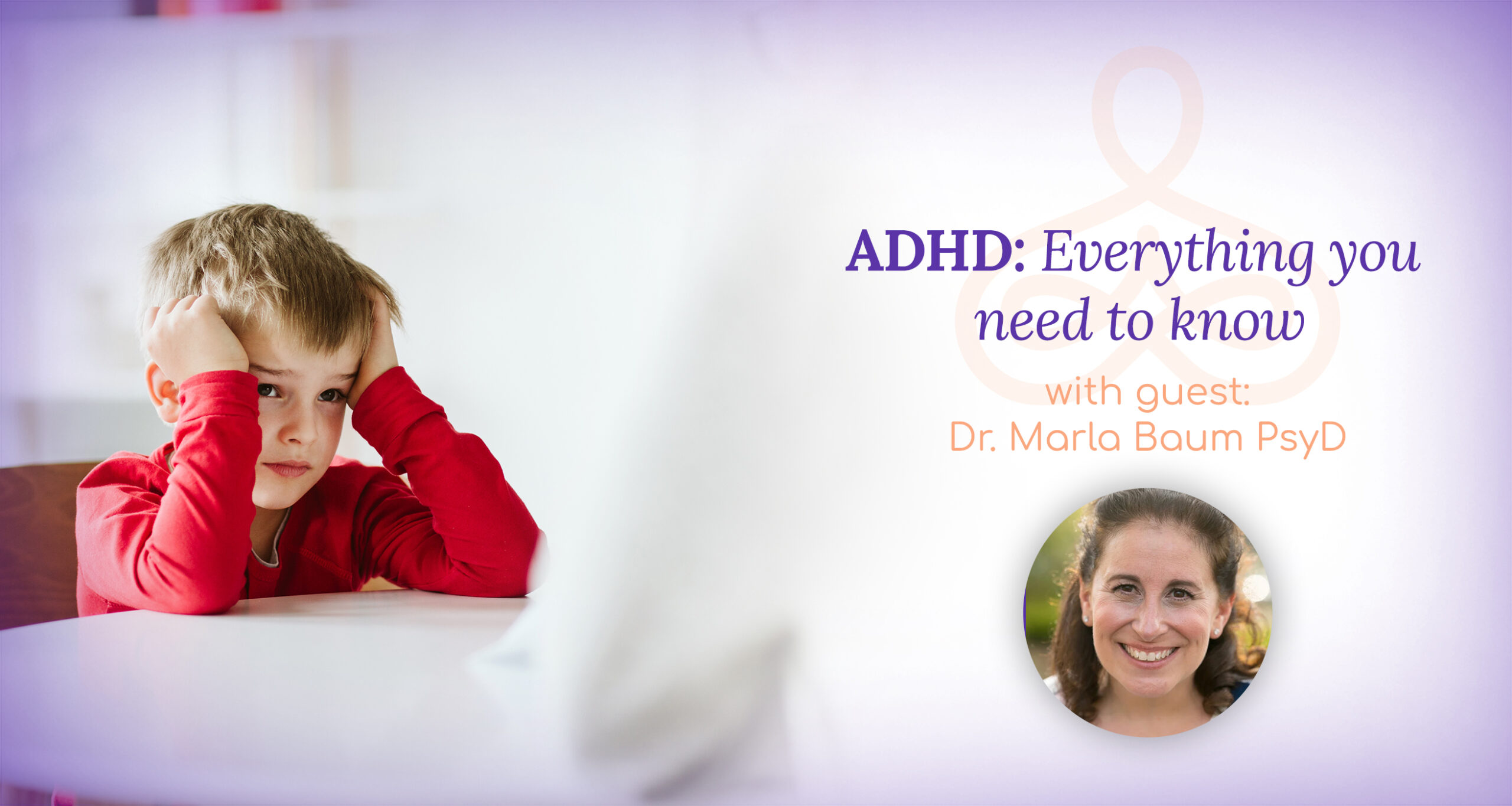ADHD can interrupt your child’s ability to focus, affecting daily life. In the Healthful Woman podcast hosted by Dr. Nathan Fox, he discusses “ADHD: Everything you need to know” – with podcast guest Dr. Marla Baum PsyD. Continue reading to learn about ADHD, recognizing symptoms in children, and treatment options.
What is ADHD?
ADHD is labeled as attention hyperdeficit disorder. The condition has three subtypes. The first is inattentive, the second is hyperactive, impulsive type, and the third is a combination where an individual experiences inattention and hyperactivity. ADHD is known to be a genetic predisposition.
ADHD can affect learning, the ability to make friends, the ability to maintain relationships, organization, behavior, and emotional health.
ADHD Diagnosis
For a child to be diagnosed, they must experience their symptoms in multiple settings. Dr. Baum performs a complete evaluation when diagnosing a child. She instructs the child to perform structured and unstructured tasks. Talking to teachers, school psychologists, or the guidance counselor is also important. She has observed that children with ADHD can also have trouble switching tasks or responding to structure.
ADHD in children can be commonly confused with children who experience anxiety, a learning disability, or another condition. This makes it essential that a neuropsychologist comprehensively evaluates patients before treating them for their symptoms.
ADHD and Other Disorders
Dr. Baum expresses, “ADHD is one of those disorders that has one of the higher rates of what we call comorbidity because the issues themselves can lead to different learning disabilities. And, you know, the ability to regulate yourself emotionally as a child falls under executive function, which is related to ADHD. So, if the kid’s ability to regulate their emotion is on the more difficult side, then it’s important to keep in mind whether it is going to turn into an issue with anxiety, an issue with depression, a behavior issue, and conduct.”
Treatment
Treatment for ADHD can range from school changes, familial resources, and others. Creating an intervention plan can help effectively treat ADHD.
Dr. Baum stresses, “Kids with ADHD have a developmental lag in their ability to turn on that dopamine loop. They have to be interested in order to focus, whereas people without ADHD do not need to be inherently interested. They can turn on the dopamine loop in their brain and get that sense of satisfaction no matter if they’re interested or not. So, what the medication does is it helps stimulate the production of dopamine so that the child gets interested and will focus.”
ADHD medications are fast-acting, allowing individuals to choose the best days to take their medication. These can be taken in specific settings or on certain days and will still show effective results. These do not need to be taken daily to work effectively.
Behavior therapy can help shape an individual’s behavior by reinforcing positive or negative behavior to help a child understand how to behave appropriately.
Patients who are treated with behavior therapy, medication, or a combination are likely to experience a reduction in their ADHD symptoms.
The best way to determine whether or not your child has ADHD is through comprehensive testing. During this time, your doctor will help you create the best treatment plan for your child.
Read Our Blogs
Read the Carnegie Women’s Health blogs today to learn more about health and wellness. The Carnegie Women’s Health blogs discuss the Healthful Woman Podcast, mental health, nutrition and exercise, gynecology, parenting, fertility, and more!

